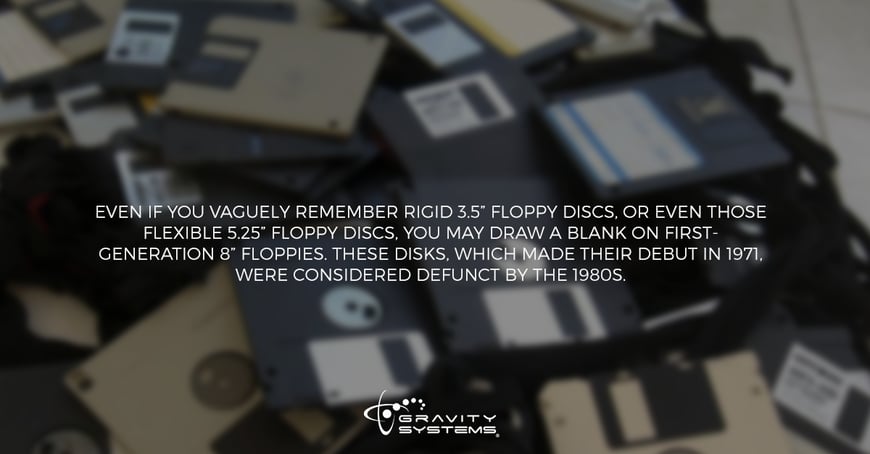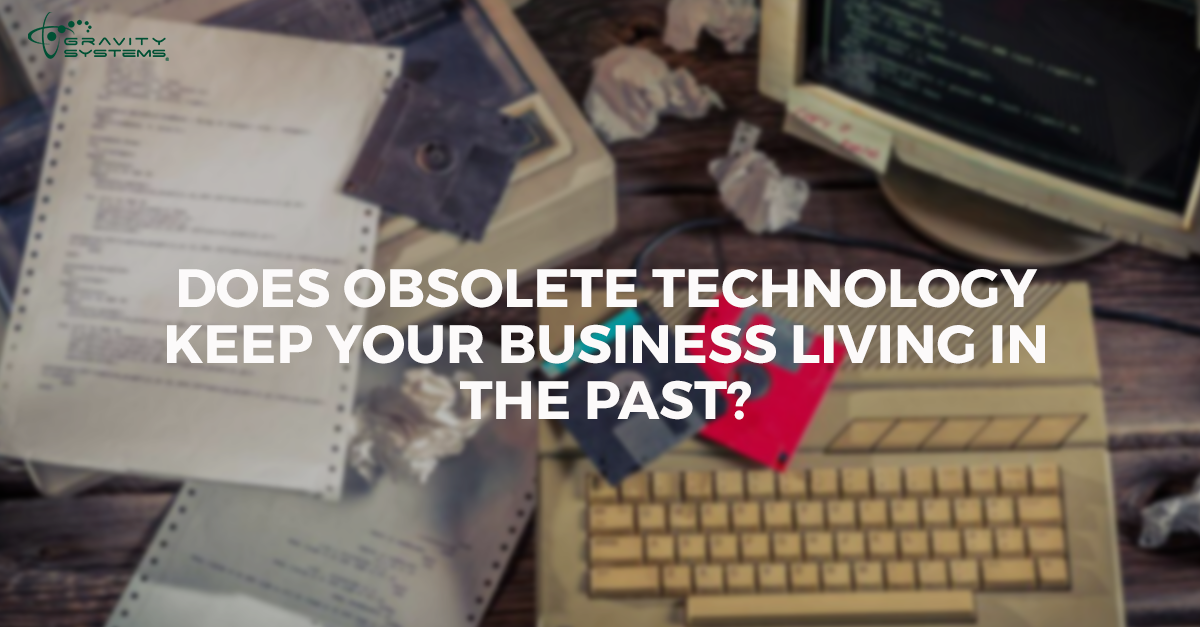Even if you vaguely remember rigid 3.5” floppy discs, or even those flexible 5.25” floppy discs, you may draw a blank on first-generation 8” floppies. These disks, which made their debut in 1971, were considered defunct by the 1980s.
Well, guess what? As late as 2017, the Pentagon was still using 8” floppy discs as part of its nuclear operations program. Not only is the fate of the free world hanging on 1970s technology, but other government institutions such as the Treasury and Social Security Departments are actually running on mainframes that still use 1950s machine-code languages. Obsolete technology is holding them back – and to a less extreme degree, it may be holding your business back as well.
One problem with obsolete technology, of course, is that replacement parts become harder and harder to find. So are programmers who understand how to work in ancient languages such as COBOL, not to mention figure out the necessary patches to keep these systems even somewhat secure. It's estimated that maintaining these relics of the past costs about three times as much as maintaining a modern-day system – which is why the government has finally decided to make the leap into comprehensive upgrades.
The other problem is that one ancient component can require the use of another ancient component. For instance, if your out-of-date operating system doesn't support modern device drivers or run on today's computers, you're stuck with outmoded hardware and peripherals until your upgrade your software. Meanwhile your competitors' IT systems boast more storage, better speed, and higher security than yours could ever hope to attain.

If you're ready to stop living in the past, contact the IT support team at Gravity Systems. We can point out the weak links in your IT chain and help you create a newer, faster, more cost-effective system!
Related Post : How Remote Hands Can Extend Your Corporate IT Reach




